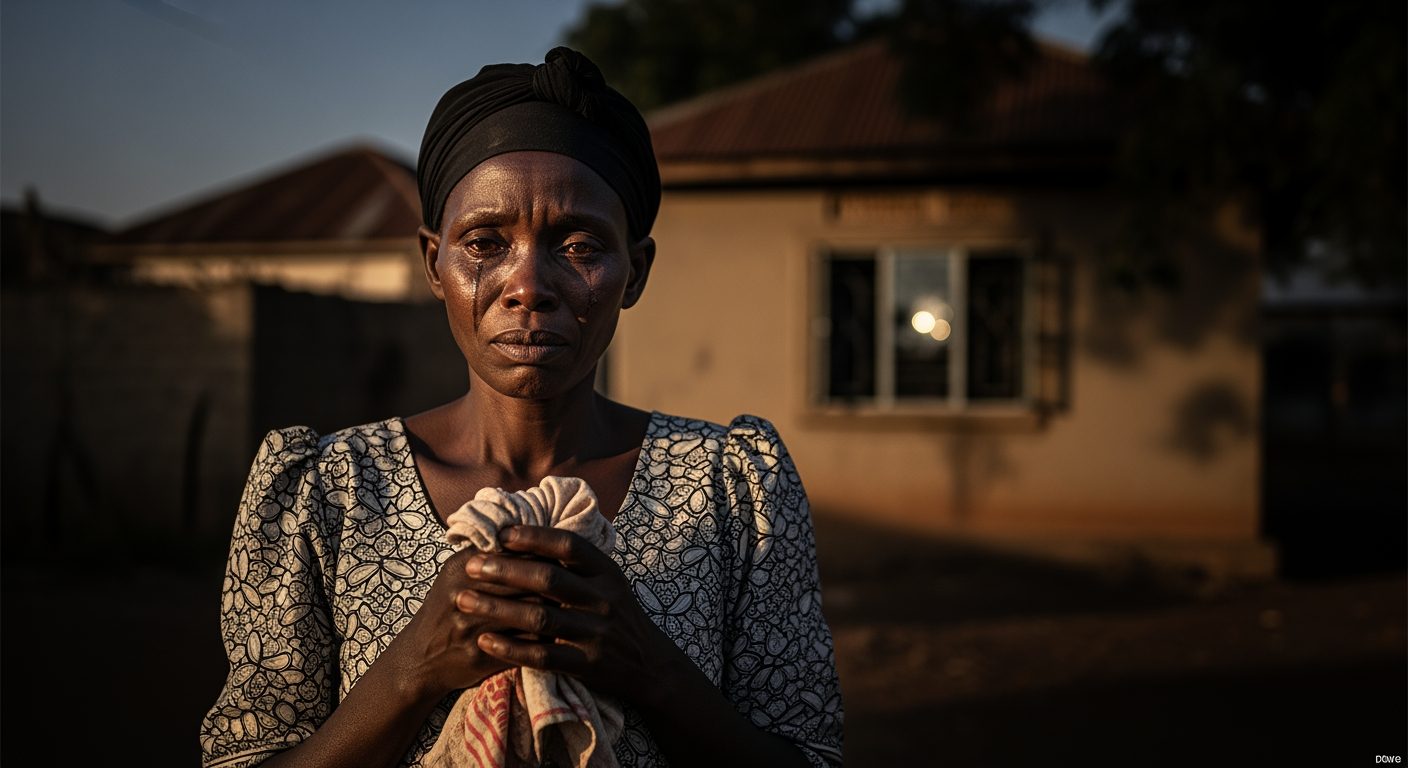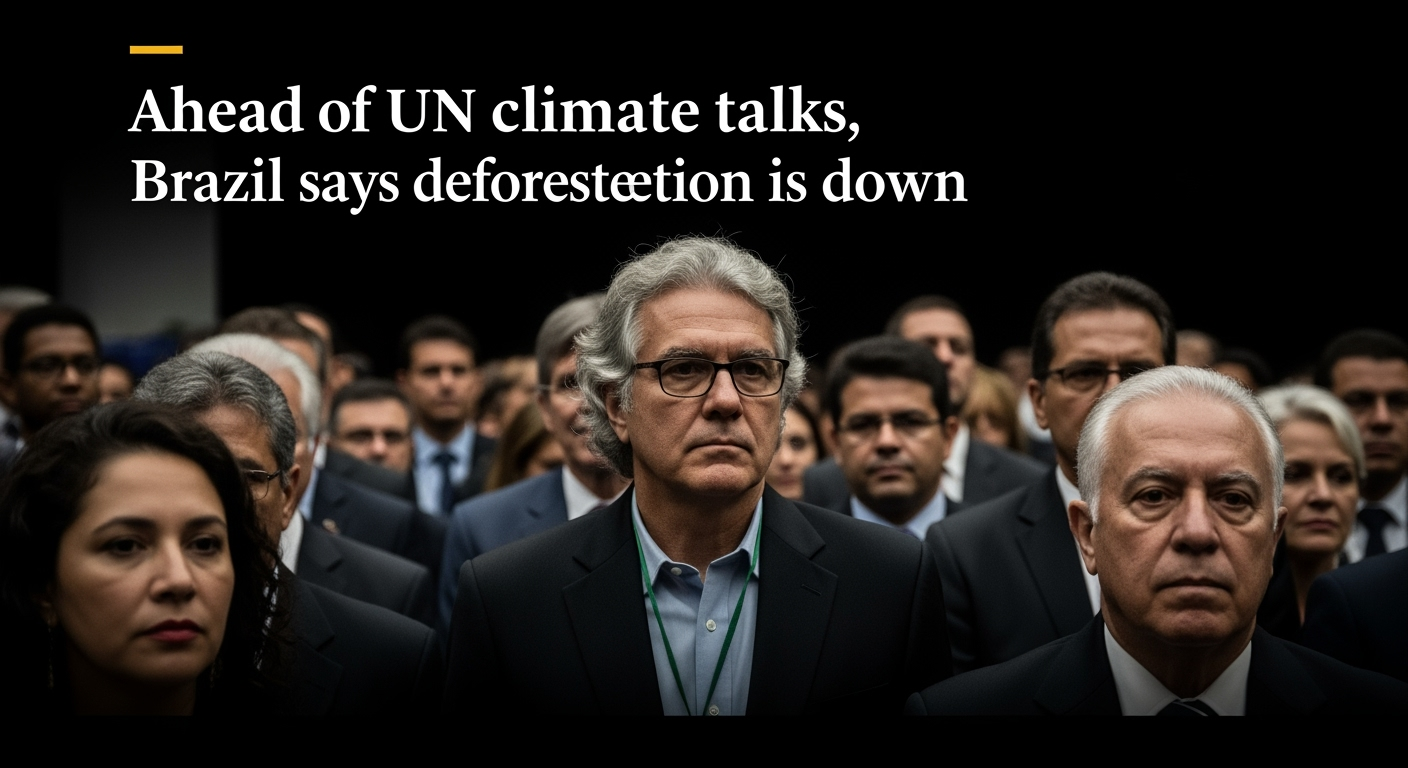Related Articles

China Launches Groundbreaking Space Mission with Youngest Astronaut and Historic 'Space Mice'

Hungary's Top Tabloid Acquired by Company with Close Ties to Orbán, Raising Media Freedom Concerns





Brazil has announced a significant reduction in deforestation within its Amazon rainforest, a pivotal development occurring just weeks before the nation is set to host the crucial COP30 United Nations climate summit. This reported decline offers a renewed sense of optimism for global climate goals, showcasing a reversal of recent damaging trends and bolstering Brazil's standing on the international environmental stage. The figures underscore the impact of renewed governmental commitment and enforcement efforts, even as persistent challenges like wildfires continue to plague the vital ecosystem.
Official data released by Brazil's National Institute for Space Research (INPE) indicates a substantial decrease in Amazon deforestation. Between August 2024 and July 2025, the clearing of forest cover in the Brazilian Amazon dropped by 11% compared to the preceding period. This reduction translates to 5,796 square kilometers (approximately 2,238 square miles) of forest cleared, representing the lowest annual deforestation rate in nearly a decade. In fact, this period marks the third-lowest rate since comprehensive records began in 1988. Further insights from the Ministry of the Environment and Climate Change revealed a 45.7% drop in deforestation alerts from August 2023 to July 2024, signaling the largest reduction recorded by the DETER-B monitoring system for that timeframe. The area under alert decreased from 7,952 km² to 4,315 km² year-over-year. This positive trajectory is particularly noteworthy given that Brazil had experienced rising deforestation rates between 2019 and 2022. Historically, Brazil demonstrated remarkable success in curbing deforestation, achieving an 80% reduction between 2004 and 2012, showcasing the nation's capacity for effective conservation when robust policies are in place.
The recent decline in deforestation is largely attributed to a reinvigorated focus on environmental protection under the current administration of President Luiz Inácio Lula da Silva. The Environment Ministry credits stronger environmental enforcement, expanded satellite monitoring, and enhanced coordination among federal agencies for these positive results. Upon taking office, President Lula da Silva announced a series of measures aimed at strengthening the protection of the Amazon and other Brazilian biomes. A key policy instrumental in this turnaround is the re-implementation and revitalization of the Action Plan for the Prevention and Control of Deforestation in the Legal Amazon (PPCDAm), first established in 2004 and resurrected in 2023. This comprehensive plan focuses on territorial and land-use planning, environmental control and monitoring, and fostering sustainable production activities. Crucially, enforcement agencies have stepped up their efforts. Ibama, Brazil's environmental enforcement arm, increased inspections by 38% from 2024, leading to significant environmental fines totaling 2.85 billion reais (approximately $520 million) and the seizure of over 4,500 pieces of machinery and livestock linked to illegal clearing activities. This robust enforcement, coupled with increased satellite monitoring and the pursuit of civil lawsuits against illegal deforestation and burning, underscores a renewed commitment to combating environmental crimes. The government's approach also aims to promote sustainable livelihoods, acknowledging that long-term solutions require moving beyond solely command-and-control measures to encourage business models that do not rely on forest destruction.
Brazil's reported success in slowing Amazon deforestation comes at a critical juncture, as the nation prepares to host the 30th United Nations Climate Change Conference (COP30) in Belém in 2025. The decision to hold the summit in an Amazonian city is deeply symbolic, drawing global attention to the threats faced by the rainforest and its inhabitants. These deforestation figures will undoubtedly be a central point of discussion, positioning Brazil as a key player in the global effort to combat climate change. President Lula da Silva is expected to announce the Tropical Forest Forever Facility at COP30, an ambitious $125 billion investment fund designed to reward tropical and subtropical nations for protecting their forests, with Brazil having already pledged $1 billion to the initiative. This proposed fund aims to provide up to $4 billion annually, potentially transforming finance available for forest conservation worldwide. While Brazil's progress is encouraging, the broader global picture remains challenging; overall deforestation rates in 2024 were 63% higher than needed to meet the 2030 goal of halting and reversing global deforestation. This highlights the importance of Brazil's efforts as a model for other nations striving to meet international climate commitments.
Despite the significant strides in reducing deforestation, formidable challenges persist. One of the most pressing concerns is the surge in wildfires, which have reached record levels in the Amazon from January to October 2025, even as deforestation rates decline. These fires, often set to clear already-deforested land, risk undermining conservation gains and underscore the complex interplay between human activity and natural phenomena. The Amazon biome experienced a staggering 110% jump in forest loss due to fires from 2023 to 2024. Compounding this issue are the effects of climate change, with record heat in 2023 impacting the Earth's ability to absorb carbon, and hotter, drier weather fueled by phenomena like El Niño contributing to increased fire severity and spread. Moreover, the primary drivers of deforestation—cattle ranching and agricultural expansion—remain powerful economic forces. Sustaining the current downward trend requires not only robust enforcement but also systemic changes that transition the Amazon's economy towards sustainable practices. This includes expanding the bioeconomy, shifting to low-carbon agriculture, and ensuring that development is just and equitable for local and Indigenous populations. Indigenous communities, recognized as vital protectors of the forests, are crucial to these efforts, safeguarding traditional knowledge and maintaining essential ecosystem services. The long-term success of Brazil's commitment to zero deforestation by 2030 hinges on maintaining and accelerating these efforts, ensuring that the positive momentum translates into lasting change for the Amazon and the global climate.
Brazil's announcement of a substantial reduction in Amazon deforestation marks a hopeful turn for climate action globally, offering a tangible example of how renewed political will and stronger enforcement can yield critical environmental benefits. This achievement arrives as the nation prepares to host COP30, positioning it to lead discussions on forest protection and climate finance. While the progress is undeniable and welcomed by the international community, the ongoing battle against devastating wildfires and the deep-seated economic pressures driving forest clearing emphasize that the fight for the Amazon's future is far from over. Sustained vigilance, comprehensive policy implementation, and global cooperation remain imperative to secure the long-term health of this irreplaceable natural treasure and contribute meaningfully to the planet's climate stability.